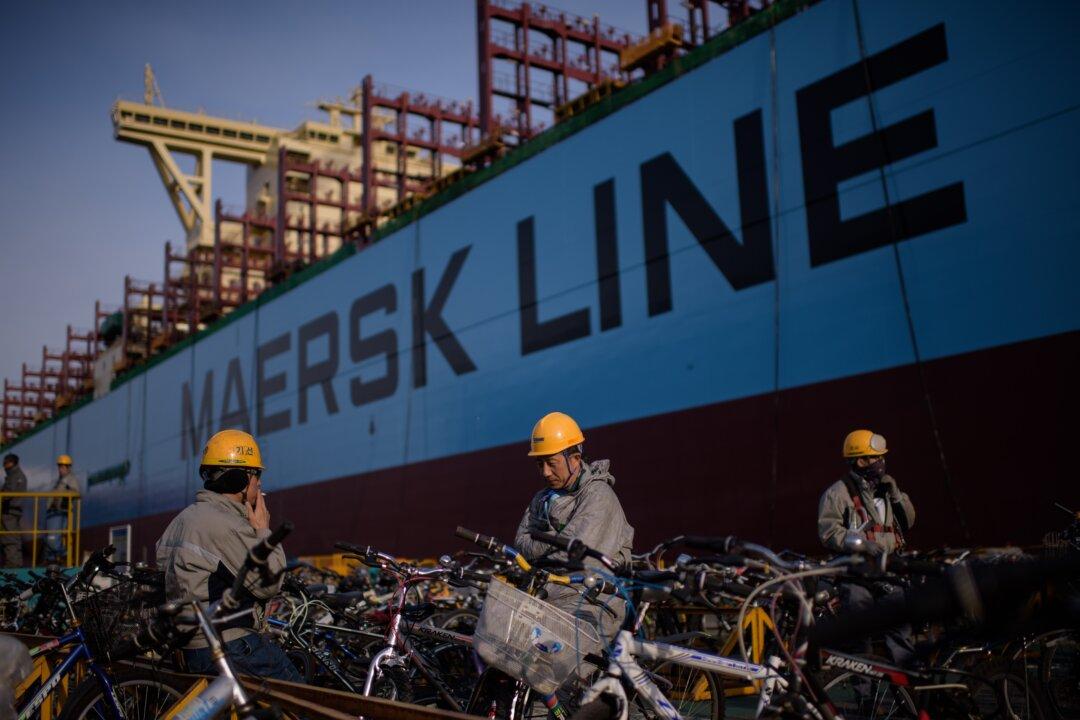Danish shipping giant Maersk said it intends to resume shipping through the Red Sea region after earlier canceling it due to security concerns related to Houthi attacks.
In mid-December, Maersk suspended shipments through the Red Sea following drone and missile attacks on ships in the region. On Sunday, the company announced it would be resuming operations through the route. “We have received confirmation that the previously announced multi-national security initiative Operation Prosperity Guardian (OPG) has now been set up and deployed to allow maritime commerce to pass through the Red Sea / Gulf of Aden and once again return to using the Suez Canal as a gateway between Asia and Europe,” the company said in a Dec. 24 update.





